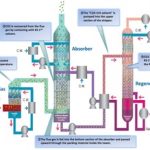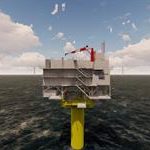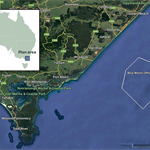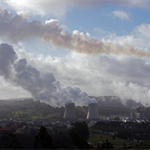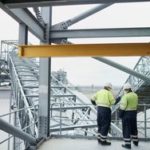UK CCS cluster anchored by Drax BECCS project moves forward
Energy Disrupter
ADVERTISEMENT
The U.K. government on Oct. 19 issued an update on the U.K.’s CCUS Cluster Sequencing Process, confirming that the Hynet and East Coast Clusters are moving forward. Drax’s bioenergy with carbon capture and storage (BECCS) project will play a vital role in the East Coast Cluster.
A statement issued by Greg Hands, Minister of State for Energy, Clean Growth and Climate Change, explains that the CCUS Cluster Sequencing Process was launched in May 2021. The government’s 10 point plan includes a commitment to deploy CCUS in at least two industrial clusters by the mid-2020s, and four by 2030, he added.
“Our cluster sequencing process, which has, through the CCS Infrastructure Fund, £1 billion to provide industry with the certainty required to deploy CCUS at pace and at scale, has completed the first phase of the evaluation of the five cluster submissions received by my department,” Hands said. “I am today, confirming that the Hynet and East Coast Clusters have been confirmed as track 1 clusters for the mid-2020s and will be taken forward into Track-1 negotiations.”
The East Coast Cluster is made up of the Zero Carbon Humber and Net Zero Teesside projects. Together those industrial clusters made up 50 percent of the U.K.’s industrial emissions. Drax is an anchor project for Zero Carbon Humber.
“Today’s Government announcement is welcome news, and a crucial next step on the U.K.’s decarbonization journey,” said Will Gardiner, CEO of Drax Group. “Drax’s bioenergy with carbon capture and storage (BECCS) project will play a vital role in the East Coast Cluster, enabling the U.K.’s most carbon intensive regions decarbonize helping the U.K. to reach net zero.
“BECCS at Drax will protect and create tens of thousands of jobs, whilst showcasing the U.K.’s global leadership in a vital negative emissions technology,” he added. “The first BECCS unit at Drax could be operational in 2027, delivering the world’s largest carbon capture project, permanently removing millions of tonnes of CO2 from the atmosphere, playing a vital role in the fight against the climate crisis.”
A statement released by Drax indicates the company is ready to invest more than £2 billion in two BECCS units at Drax Power Station. Those BECCS projects could remove at least 8 million metric tons per year of carbon dioxide from the atmosphere while supporting the creation of a new global industry and delivering tens of thousands of new jobs.


